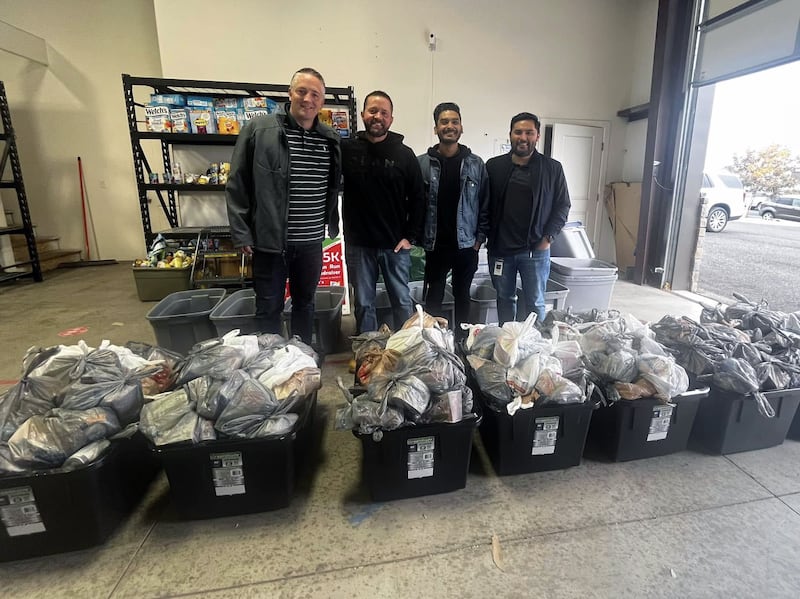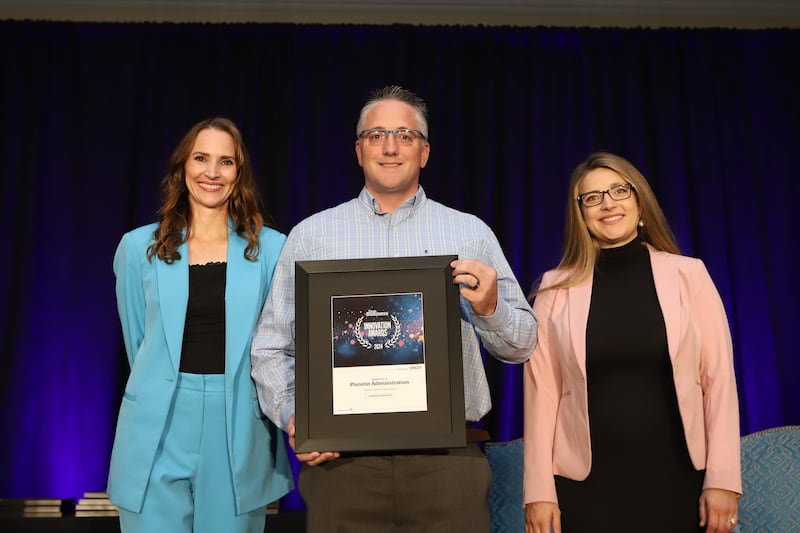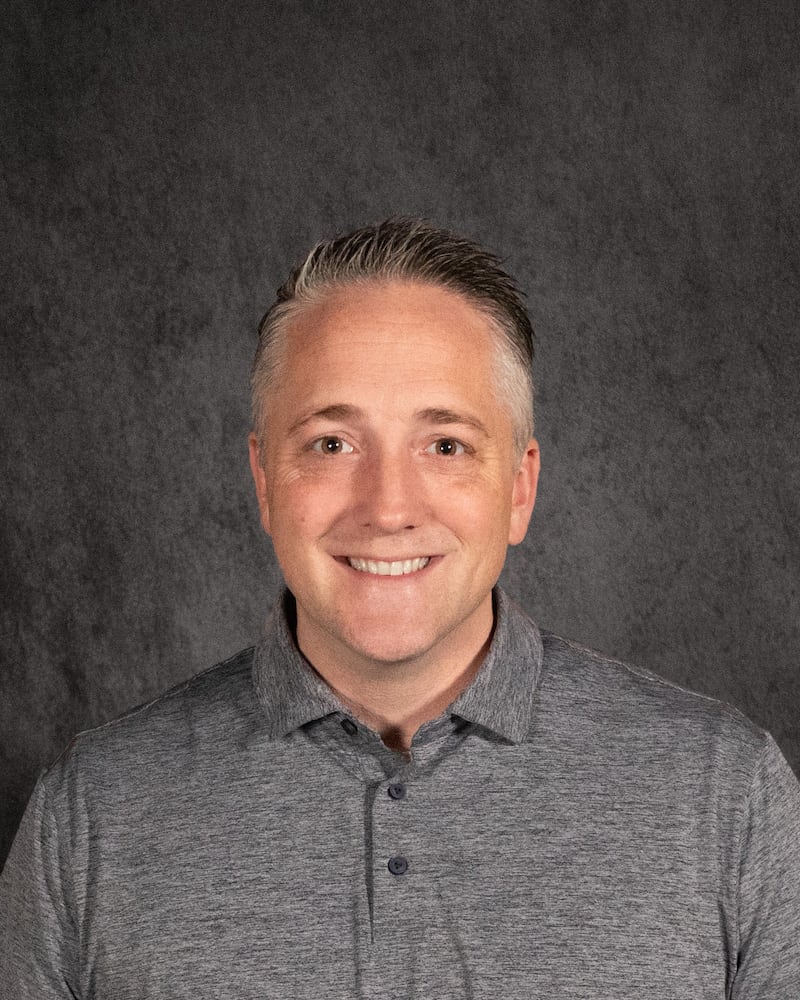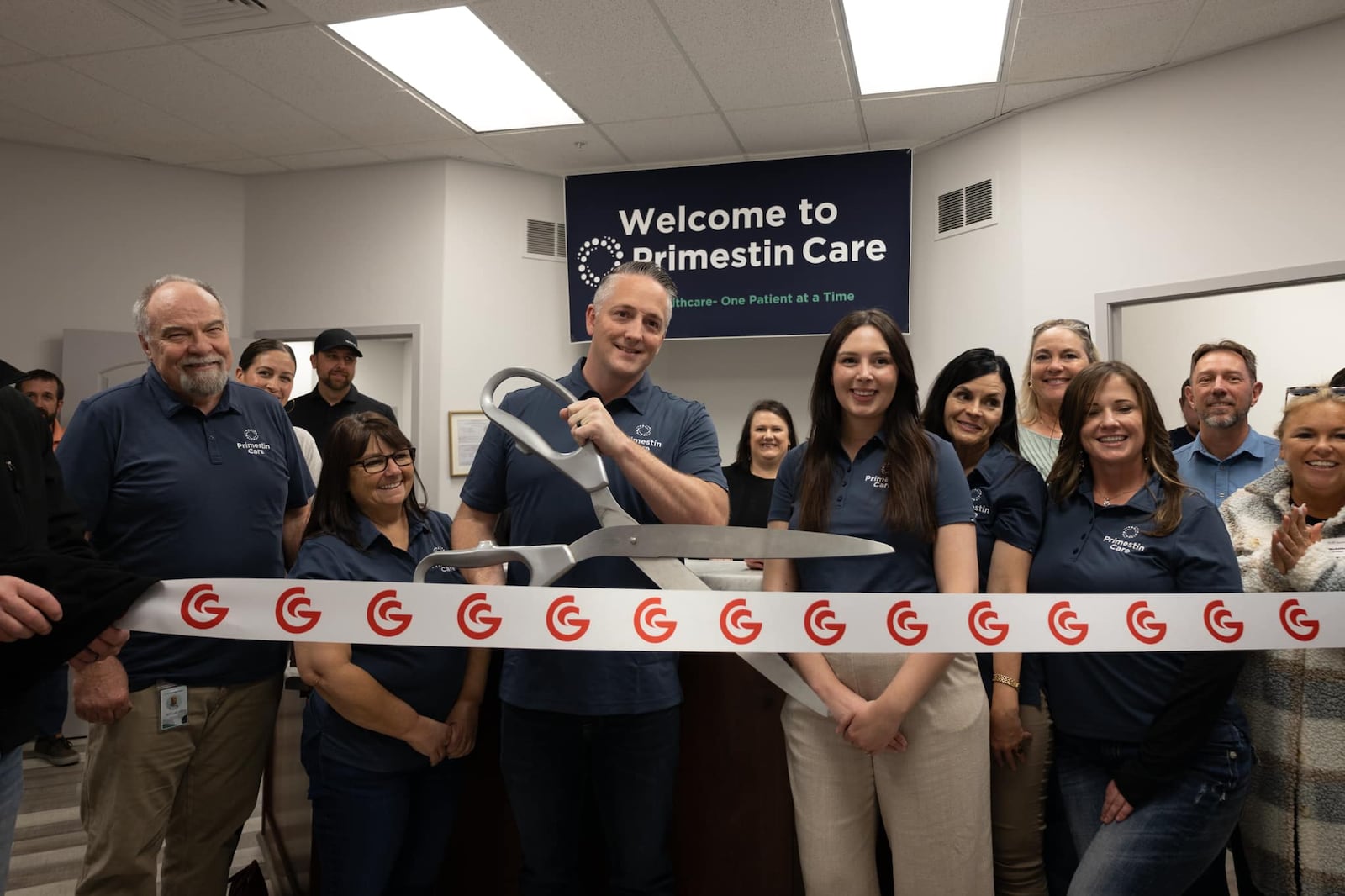Maybe Nathan Udy’s eventual decision to found Planstin Administration wasn’t predestined, but everything he experienced as a boy points to that. When he was diagnosed with epithelioid sarcoma (ES) at age 14, there was a real possibility he would never overcome it. At the time, he was told no one else had.
ES is a rare type of soft tissue cancer that accounts for less than one percent of all soft tissue sarcomas, and doctors in the United States only diagnose approximately 150 cases of it annually. A treatment plan led to a long surgery for Udy, then radiation, and then so many follow-up surgeries that he lost count.
It wasn’t even the illness and going through a full year of treatment that impacted Udy the most. Instead, it’s what he gleaned about a very complicated and frustrating healthcare system. He remembers his mom often spending several hours on the telephone at a time, battling with insurance organizations to ensure Udy received his required care. His dad did the same, frequently arguing with those who stood in the way of what his son desperately needed.
Beyond the kind of treatment he would get, he had questions about how his family would pay for what was received. As the middle sibling of seven, Udy understood early on that he’d come from humble beginnings. There were concerns that his family’s financial welfare might take a hit.
“Even though I asked a lot of questions during that time, my understanding of the health insurance industry was muddied at best,” Udy says. “It was forever complicated and made little sense.”
Udy and his family were limited to using a select few in-network doctors, and they had to choose from only a handful that they could use. Spending a lot of hours in waiting rooms was common.

Still, on the days he had enough energy during treatment, Udy practiced tricks on the trampoline, skateboarded and learned computer programming. For him, the goal was refusing to let how he felt physically hold him back. He didn’t know what to expect — or if his future would be truncated — so he acted as if his ailments would improve.
“When my cancer went into remission, there was no celebration,” Udy says. “Without knowing whether or not it might return, we continued forward with life and tried to assume it wouldn’t.”
It was a grueling ordeal, but much more manageable than some others he’d heard about with far worse cancer experiences. Still, it didn’t lessen what happened to him. It left its mark.
Transforming health insurance through experience
When Udy was much older, his parents gifted him a box. Inside it were all the doctor’s notes from his medical records and copies of bills documenting his healthcare journey. By analyzing those many papers, he discovered his doctors were often blocked from providing the care they most wanted for him.
This taught him how unfair and overpriced care can be. “Altogether, the care was over $1 million in medical expenses when it was over with. It was as much of an injustice then as it would be now,” Udy says.
Prior to founding Planstin, Udy had been selling health insurance, often using his acquired know-how to assist others in battling the healthcare system. Leaning on past experience, he consulted with organizations desperate to establish the best healthcare coverage possible for their employees. As problems surfaced, he’d provide them with better solutions.
Udy started seeing ways he could fix the broken healthcare industry, at least in part. In short order, he switched to providing health insurance to match hard-to-locate solutions with healthcare problems.
“As an agent, I knew I couldn’t fix everything, and there were limits in place to what I could do. But I had compassion for those who were often in hopeless situations,” Udy says, and he let it lead the way, despite complicated hoops to jump through and a lot of additional costs.
When Udy started Planstin in 2016, he was intent on not biting off more than he and his team could chew. Instead, they started by tackling the biggest issue for all: decreasing costs.

The Affordable Care Act (ACA) had come about, and individuals were getting penalties for not having health insurance. Planstin established an employer-based healthcare plan that met ACA requirements for employers, one that allowed preventive care and access to healthcare. It brought costs down for their clients by 40-60 percent as compared to traditional insurance.
“If someone can’t afford the coverage they need, they go without it or get a cut-rate, subpar option,” Udy says. “But everyone deserves the best care they can get, no matter their circumstances. There are a lot of desperate people out there trying to fill a need.”
Udy didn’t stop at cutting costs, though; his plan also didn’t confine anyone to a network of specific providers. As Planstin worked proactively with doctors to facilitate care, the company was able to help them get the care they needed quickly and without restrictions.
The speed at which Planstin was able to offer care — and the low prices they were able to attach to it — are two very big reasons Ashley Yardley, co-founder of Advanced Mobile IV, became a Planstin customer.
“We chose Planstin because they had a better package all the way around,” Yardley says. She recently shared via testimonial video that Planstin was the best choice for her employees because the prices for dental and vision coverage were half the price of other companies she reviewed.
When Yardley’s son had a seizure, she needed to schedule an MRI right away. She was told she’d need 3-6 weeks for prior authorization, but because Planstin didn’t require that, she was able to be immediately prioritized. She and her son saw a doctor 20 minutes later. Yardley was able to get second and third opinions within the week and get every test she wanted for her son.
“We had our HSA to cover the deductible and we weren’t out anything,” Yardley says. “It’s still an issue and we’re still dealing with it, and it’s still covered.”
What’s in a name?
When Planstin was founded almost a decade ago, its small number of employees could only tackle so much at once. Udy had decided to bootstrap the operation independently and was confident that their ability to do more would only increase as the company grew.
Part of that meant increasing awareness. Udy’s company was the metaphorical new kid on the block, an unfamiliar organization in an industry of the largely familiar.
“Going through an experience like I did as a child, when death felt uncomfortably close, I understood early on how bad it could get. Good health — and, subsequently, good healthcare — makes a big difference, even if it’s just knowing you can maintain your health regularly.”
— Nathan Udy
“People are inclined to go with the known healthcare solution, and my company felt like an unknown to most at first,” Udy says. “People wondered if the company had the right solutions in place to help with their specific issues. There were others who even thought Planstin may have been a scam. … Because we are a healthcare plan administration company, we wanted to project the idea that this company had a unique plan in place.”
Udy added “-stin” at the end of the company name, a Latin suffix meaning “distinct.” “Planstin” resonated with the company’s mission and the solutions it provided.
There was no time to waste. The day after the company name was decided, Udy registered it and built a website in two hours. He created a logo and a menu of offerings. He sent an email to a group of people and gained his first healthcare broker the same day.
Betting on the underdog
Other customers followed, whole companies at a time.
Of Balance of Nature’s nearly 550 employees, benefits manager Kristi Stone shared in a testimonial video that nearly 85 percent have chosen Planstin as their medical plan provider of choice — a sharp increase from what once was a former participation rate of just 43 percent. Full coverage is provided to employees for under $100 a month.
When Stone’s team members had a child who became very sick, and an unexpected night in the hospital turned into several in a row, the cost of the care never entered her mind.
“They know they can have what they need, that it’s available to them, and they don’t have to worry,” Stone says. “It’s such a relief to them … that instead of having to worry about that financial aspect, she got to focus [on] the care of her child, be there with her child, love her child — [all] the things that we should be able to do.”
Planstin might still feel like the underdog compared to more established health insurance companies — even though thousands of employers depend on them countrywide — which means it still has a lot of flexibility and freedom to do what bigger conglomerates often won’t. While there are limitations, Udy says that care is at the heart of all the company’s activities.
“We want to make sure our clients are our habit. [We want to] solve problems they can’t on their own,” he says.
Today, Planstin Administration has grown to about 90 employees — or 150, counting global contractors — and has helped solve problems for many. As word of mouth surrounding the company grows, Udy is often asked why he and his employees do what they do. His answer usually amounts to some version of: “Every time I see injustice, I think to myself, how can we make it better?” In the battle for better healthcare, he and his company will keep finding ways to improve.
“Health is connected to so much of a person’s life. Everyone’s families are one heartbeat away from destruction, one accident away from tragedy,” Udy says. “Going through an experience like I did as a child, when death felt uncomfortably close, I understood early on how bad it could get. Good health — and, subsequently, good healthcare — makes a big difference, even if it’s just knowing you can maintain your health regularly.”
But here’s the thing about healthcare: Even as Udy figures out solutions for pressing issues, new ones get added regularly for him to attempt to solve. He’s not unlike one of those on-again, off-again car restorers, and he admits as much.
“They keep old classic cars in their garages that they like to tinker with. I’m doing the same thing but more regularly,” he says. “This is my full-time gig. I get to work on the healthcare system and try to solve its problems. I’m a little obsessed. In a way, researching all that needs to be changed is the gift that keeps giving.”


